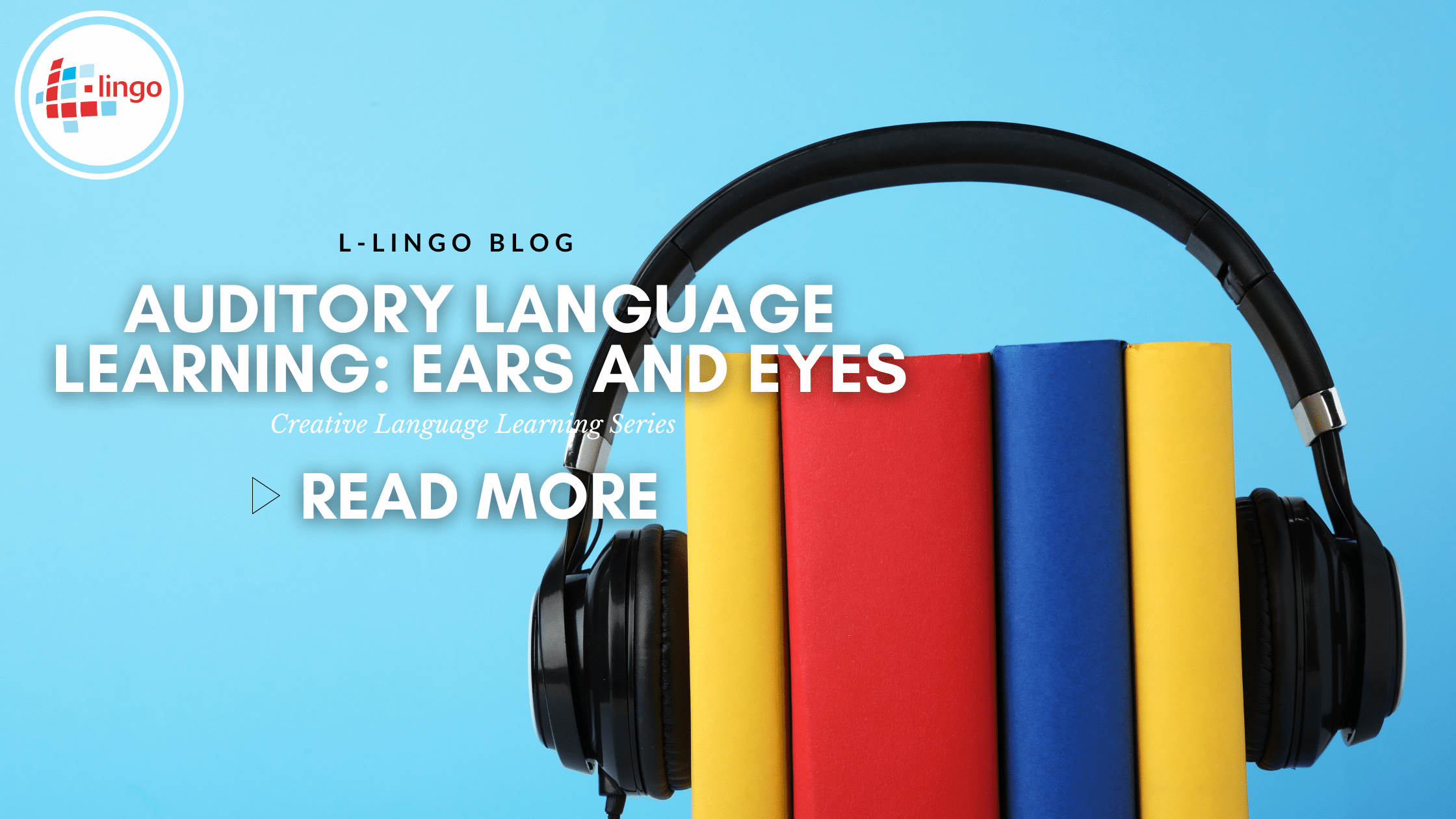Imagine speaking a language perfectly, but not being to understand a word of it, it’s literally unimaginable. Before we were even born, we were listening to language inside our mother’s womb. Even before we could speak our first words, we were surrounded by sounds. These sounds eventually morphed into spoken language through constant exposure and passive exposure. Listening has always been with us even when we didn’t acknowledge its presence. The power of listening isn’t given as much respect as it deserves in the realm of language learning.
I’m writing this article in a crowded chat lounge, and while that may not seem like any worthwhile information it’s quite important. So far I’ve found out that a group of students is planning an all-you-can-eat this weekend, somebody has a new boyfriend and there is a 25% discount on cabbage at the local supermarket. Why am I telling you all of this? Well, that’s an easy question to answer, I’m telling you all of this because I want you to JUST LISTEN!
Often times as language learners we get caught up in reaching the finish line as fast as possible. Every language learner wants to obtain the end goal of fluency – complete mastery of the language, but it isn’t solely done by racing through vocabulary and grammar. However, listening is highly underestimated. In this article, we’ll be going over how to actively listen in your target language no matter the scenario.
Places To Maximize Listening Skills
Finding the right place to practice your listening can be a bit of a challenge. This is mainly because you want a lot of input but you also want that input to be valuable. Of course, all input in language learning is valuable but you want the kind that is most likely to keep your attention.
Crowded places are often best, because not only do you have access to a variety of topics, you can also practice your attention skills. What I mean by this is that you’ll be forced to hone in on a conversation that you can actually pick apart and digest. In other words, find a place based on your language level experience.
For example, a coffee shop may be suited to beginner learners since you’re more likely to hear people discussing common topics like weather, lifestyle, and food etc. However, trying to listen to a group of sailors down at the dockyard might be a bit more troublesome; as they are bound to use sailor language and talk about marine life, oceanography, etc (at least the sailors I know). Another great place to maximize your listening skills is in a place that has long lines.
People standing in long lines are most likely going to talk to pass the time, even if they’re only talking about how long the lines are at that moment. This opportunity is a perfect window for your listening practice. You may even be able to join in on one of the conversations after listening to conversations for long enough.

High Context Listening
There are also times when you’ll be able to control the situation depending on the environment. For the sake of this article, we’ll be defining such environments as high context places. However, during these situations the conversations can become a bit complex, so always be prepared. Below is a list of high-context places you can practice your listening skills.
- Pet Shop
- Audio Store
- Fruit & Vegetable Market
- Bakery Store
- Clinic
- Hair Dresser
- Park
- Bus Stop
- Beach
- Bar
- Gym
Benefits Of Listening In Language Learning
Listening builds brain connections:
Listening is at the forefront of the whole language learning thing, after all, language is sound. Think about when you first started learning your target language; if you had no experience prior, it probably just sounded like white noise. The truth is that it takes time for the brain to build new neural pathways that associate sound with language. This is the reason why countless hours of listening can improve comprehension skills.
Listening helps you understand fast speakers:
It also takes us a while to become accustomed to the speed of our target languages whether it’s slower or faster than our native language. Listening helps us gauge the appropriate pace and matches our speaking abilities to the rhythm of the language.
Listening helps us understand dialects:
If somebody has a particular dialect they use when speaking a language you can’t just ask them to “speak their dialect.” Dialects are something that has to be expressed while in mid-conversation with a receiving dialect. You can pick up distinctions of dialects easier by just listening out for certain words and phrases that stick out. You may not always be greeted with the standard classroom version of your target language, listening can train your ear to become more flexible.
Listening Strategies
For the “Just Listen” method to work effectively, you also want to make sure you have a strategy to implement the other aspects of language learning into your routine. Below you’ll find a list of listening strategies to heighten your language learning skills.
- Identify words, grammar, phrases, and numbers you’ve already learned.
- Identify formal language when it’s being used in certain situations.
- Record some audio in a public space and listen to it in your free time.
- Ask your native friends not to hold back when speaking. 100% Speed All The Time.
- Use a notepad to write down new vocabulary when listening in public. You can always look up words you don’t know later.
- Associate the phrases you hear with the surrounding environment.
It’s Time To Open Your Ears
Sounds are everywhere, but it’s up to you to use them to their maximum potential. For that to happen you need to brush up on your listening skills and be conscious of the sounds in your space. Sound is one of the few FREE resources in language learning so you’ll want to take advantage of it every chance you get. So, if you’re seriously looking to step up your language learning game maybe it’s time to go back to the drawing board. Clean out your ears, open up your mind and JUST LISTEN.
* Disclaimer: Remember to respect the privacy of others. Listening is free, but we must also be responsible for what we choose to listen to – in other words, no eavesdropping. Public conversation is one thing, but snooping and turning in Sherlock Holmes is another.






All are good ideas, but how can I listen to people speaking Russian in a small town in Iowa? It would be easier to hear conversations like these in Des Moines or Omaha.
Hey Ben! Thanks for reading. The Just Listen strategy is more suited for those already in their target language destination. BUT that doesn’t mean you can’t recreate your own immersive experience. The great thing about practicing listening in language learning is that it is the most accessible thing to practice. Sound is everywhere, and what is language if not sound? You can try immersing yourself in Russian podcasts, radio stations, youtube news reports, audiobooks, etc. Imagination goes a long way in how you practice language learning, so be sure to add some creative flair to your routine.
Sincerely,
Kiandro